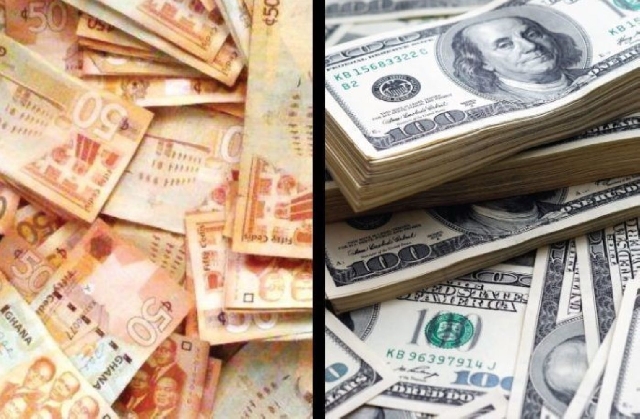
Economist Kwasi Nyame-Baafi has raised doubts about the long-term stability of the Ghanaian cedi’s recent appreciation, pointing to inconsistencies in gold export and reserve data that may suggest the use of short-term measures to influence the currency.
According to Nyame-Baafi, official records show the Bank of Ghana has added only 0.8 tonnes of gold to its reserves this year, while over 20 tonnes were exported through the central bank’s authorized gold trading partner. This significant 19-tonne gap has led him to question whether the unaccounted gold may have been sold for U.S. dollars to support the cedi’s value temporarily. “If this appreciation is truly the result of sound reforms, then the government should be able to explain these inconsistencies clearly,” he said.
Although government officials attribute the currency’s recent gains to structural adjustments and improved economic management, Nyame-Baafi remains skeptical. He argues that lasting stability requires deep-rooted economic transformation, not temporary interventions aimed at managing exchange rates.
His concerns come at a time when Ghana’s economy is undergoing recovery from recent fiscal pressures. The unexplained gap in gold-related transactions could raise questions about the transparency and integrity of monetary policy, especially as global economic conditions remain volatile due to shifting trade dynamics and commodity price fluctuations.
Gold reserves have historically played a key role in stabilizing Ghana’s economy, serving as a safeguard during external shocks. In this context, clarity on gold transactions is essential. The current lack of transparency, Nyame-Baafi warns, risks undermining public trust and could echo similar challenges faced by other resource-rich nations where weak oversight has led to economic mismanagement.
As scrutiny mounts, many observers are calling for a clear and detailed explanation from the economic authorities. Whether the cedi’s appreciation is rooted in genuine policy success or temporary fixes remains to be seen, but the need for transparency and accountability in managing the country’s natural resources has never been more critical.
FAQs: Ghana Cedi Appreciation & Gold Export Concerns
1. Why is the Ghanaian cedi gaining value recently?
The cedi has appreciated in recent months, with the government attributing the trend to structural reforms and improved economic policies. However, some experts suggest temporary market interventions may be influencing the currency.
2. What concerns has Kwasi Nyame-Baafi raised?
Economist Kwasi Nyame-Baafi has questioned the sustainability of the cedi’s strength, citing a 19-tonne discrepancy between gold exports and additions to Ghana’s gold reserves. He suspects this gap may reflect efforts to prop up the cedi through unofficial gold-to-dollar conversions.
3. What is the significance of the gold discrepancy?
The Bank of Ghana added only 0.8 tonnes of gold to its reserves, while its designated gold trader exported over 20 tonnes. The large difference raises concerns about transparency and whether gold is being used to influence exchange rates.
4. Is this situation unique to Ghana?
No. Similar issues have occurred in other resource-rich countries where natural resource management lacks transparency. It often leads to concerns about economic stability and fiscal accountability.
5. Could this affect investor confidence?
Yes. Any unexplained gaps in resource accounting can raise red flags for investors and international stakeholders, potentially undermining trust in Ghana’s economic management.
6. What does Nyame-Baafi suggest as a solution?
He advocates for greater transparency, clearer communication from authorities, and a focus on real economic transformation instead of short-term financial maneuvers.
7. How important are gold reserves to Ghana’s economy?
Gold reserves are vital as they serve as an economic buffer and support currency stability. Proper documentation and use of these resources are essential for long-term economic health.
8. What happens next?
Many observers are awaiting an official clarification from Ghana’s monetary authorities to address the gold export gap and validate whether current currency gains are sustainable.





